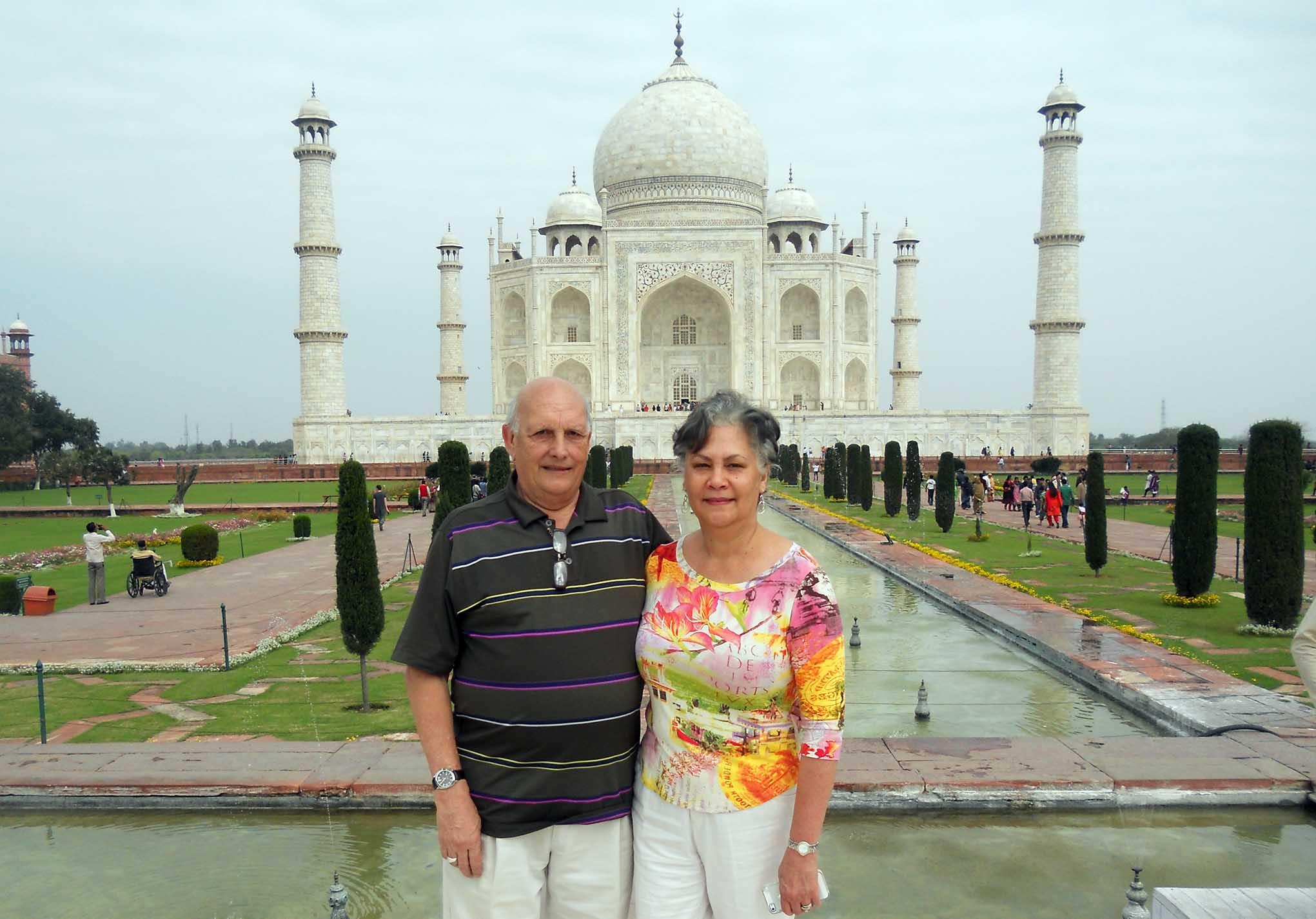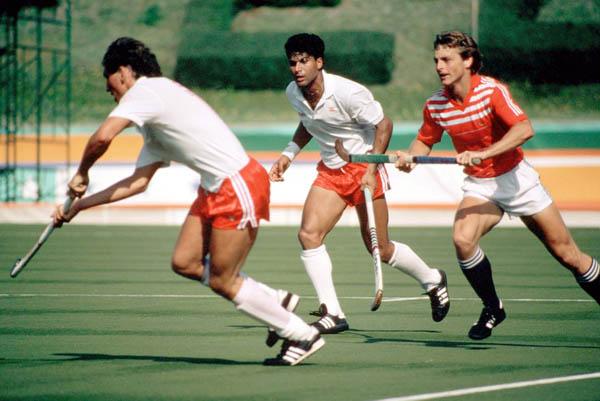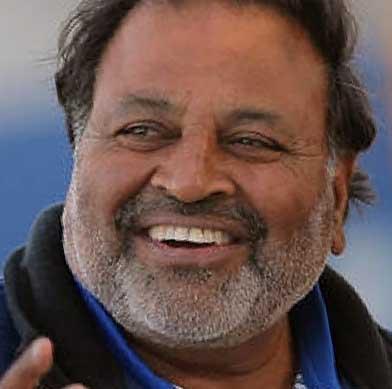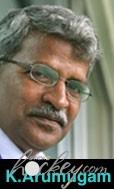Breaking the ice: Errol Hartley’s journey to revolutionize Canadian field hockey
Breaking the ice: Errol Hartley’s journey to revolutionize Canadian field hockey
Share
ERROL D’CRUZ
There was a silent hockey revolution that took place in Canada in the 1970s. And we’re not referring to the artificial surface that made its advent in Montreal at the 1976 Olympics. It was the generation of a new force from the Americas – the Canadian men’s hockey team.
At the centre of this development was an Anglo-Indian called Errol Hartley. He was entrusted a few years prior with preparing host Canada for the Olympics. The team soon to be called the Red Caribou was the representative of a fledgling nation in the world of hockey and total incognitos at home, the land of the Stanley Cup and the illustrious version of the game on ice.
As Canada tread the turf in the ongoing Pan Am Games in Santiago, Chile, with an eye on a direct qualifying spot at next year’s Paris Olympics, one can’t help but go back more than half a century where the seeds of the nation’s field hockey eminence were sowed.
Hartley’s was an unenviable job which he accepted in 1972. The tiny player base in Canada, with most based in Vancouver, British Columbia, presented the former full-back with an uphill task to present a challenge the world’s best in Montreal.
His squad had two 16-year-olds – Paul ‘Bubli’ Chohan and Pepe Motrek – and seven or eight players below 20. In four years’ time, he would pitchfork them into battle against the likes of The Netherlands, Australia, India, Malaysia and Argentina.
Hartley’s rich hockey acumen was grown and refined in the subcontinent. He was born in Allahabad in 1940 and traversed undivided India, thanks to his father’s military career, to Quetta, Ambala, NainiTal and Wellington. His talent for cricket and hockey enabled him to shine in either field but it was the ball-and-stick game that he chose to focus on, and with excellent results.
Hartley eventually migrated to England in 1956, obtained an electrical engineering degree and excelled for an Anglo-Indian team there before representing London University in 1961.
But Canada was his destiny and he landed in Vancouver in 1968 where he shone in club hockey before embarking on a coaching career in 1970, first with the British Columbia side before being handed the reins of the national side.
“In my playing days in India, there was hardly any formal coaching. I just observed top players and learned,” Hartley says. “There were quite a few top teams at the Madras Regimental Centre Gold Cup in Wellington, and many of them gave me, a skinny full-back, valuable advice.”

Canadian legend Errol Hartley: What a contribution to the development of Pan Am hockey!
A self-made player-coach was perhaps the best gift to Canadian field hockey as it braced for the cauldron in Montreal, only the second Olympic outing for the country after Tokyo 1964.
Canada finished 10th out of 11 nations (Kenya withdrew after joining a boycott by African nations). But don’t interpret that as a lowly performance.
For one thing, Canada beat their Pan American rivals Argentina 3-1, a sensational result given the South Americans’ experience and tradition, not to mention their prowess that brought a 2-1 victory over eventual World Cup winners India in the previous year and another sensational win, 3-2 over Australia, in the Montreal Olympics itself.

Canada field hockey heroes
A look at the other results in Montreal reveals a 1-3 defeat to The Netherlands (1973 World Cup winners), 0-3 to Australia (1968 Olympic silver medallists) and India (1975 World Cup winners and eight-time Olympic champions) and 0-1 to Malaysia (4th at the 1975 World Cup).
In the classification round, Hartley’s brave hearts went down 2-3 in extra-time to Belgium but finished above Argentina. A doughty performance by any reckoning and one that was to shape Canada’s stature in world hockey as a force from the Americas and keep continental rivals Argentina on their toes.
As Canada took steps towards building its image, reputations took a tumble on the novel artificial surface. India slithered and slipped to seventh spot, their lowest ever and first Olympic outing without a medal and 1972 gold medallists (West) Germany finished fifth. But it was the teams from the Antipodes that stole the show with New Zealand and Australia entering the final. In a tournament of upsets, the gritty and tenacious Kiwis followed the script to upstage the 1968 silver medallists and grab the gold medal — an unthinkable prospect before the tournament.

Paul Publi Chohan (Centre). Photo Courtesy: fieldhockey.ca
“Hartley’s Babes” had grown into men and, even after he parted ways when his stint with the team ended after the Olympics as per contract, Canada kept the Maple Leaf flying high. A year and a half later, the hockey world rubbed eyes in disbelief when in Buenos Aires, Argentina, Canada put it across defending World Cup champions India 3-1.
Seven years later, Canada scripted history at the Pan Am Games in Caracas, Venezuela, by dethroning hitherto continental invincible Argentina with a 3-1 win to emerge champions for the first time ever. The guiding light was Shiv Jagday, another Indian-born Canadian. Jagday, 75, flashes back to Canadian hockey’s watershed moment: “The key players in 1983 were those trained and developed by Errol (Hartley) who picked them as teenagers in 1971.
“Errol was a good artist who moulded a player according to his vision and dreams and I had the good fortune of coaching those players in the team,” says Jagday.
Fred Hoos, Reg Plummer, Alan Hobkirk, David Bisset and Paul ‘Bubli’ Chohan were the survivors of the 1976 squad that did duty in Caracas.
Canada retained the title four years later in Indianapolis, USA, repeating the score line against Argentina and added two more in 1999, at home in Winnipeg (1-0) and in 2007 in Rio de Janeiro, Brazil, via the tie-breaker at the expense of their arch rivals from South America.
Canada have since also notched victories over India and Pakistan in the World Cup and are viewed with circumspection by teams in the top bracket.

Fmr Canadian coach Shiv Jagday
Hartley’s love for coaching took him to Zambia and Trinidad and Tobago where he coached the national team. However, remote locations prevented him from watching the latest trends in the game. In 2008 he could watch hockey at the Beijing Olympics on TV and could scarcely recognize the game.
Hartley says, “The rules had so drastically changed that I hardly understood the game. Now that I have seen it more closely and had a chance to study the new rules and tactics, I can only lament the passing away of that beautiful game and the rise of “helter-skelter” hockey. I am pleased I am not part of it now as I see very little in the new game that is attractive and skillful. But that is another topic.”
Hartley lives with his wife Patricia in Vancouver and takes joy in his activity with Fit Fellas, a fitness class for over-80s. He makes light of its aspirations but one dares say that much of the energy that the group exudes stems from Hartley’s grit and gumption at Montreal 1976.
Canada roster at the 1976 Montreal Olympics: James MacDougall, Sarbjit Singh Dusang, David Bissett, Alan Hobkirk, Reg Plummer, Lee Wright, Lance Carey, Peter Motzek, Doug Pready, Kelvin Wood, Peter Lown, Fred Hoos, Paul Chohan, Mike Mouat, Kuldip Singh Gosal, Antoine Schouten. Coach: Errol Hartley
www.stick2hockey.com is India’s oldest hockey website. Launched in 1999, the website, edited and owned by hockey historian and author K. ARUMUGAM, has covered all
major tournaments and events with precision. www.stick2hockey.com is the first site in the hockey world to bring viewers live text commentary and duly entered the prestigious Limca Book of Records. If vintage stories are what you are looking for, this site is the right one for you. You will also find pictures, some of them among the rarest, images of precious newspaper clippings, match reports, news breaks, interviews, features, statistics and history on a site respected by one and all in the hockey world.

 major tournaments and events with precision. www.stick2hockey.com is the first site in the hockey world to bring viewers live text commentary and duly entered the prestigious Limca Book of Records. If vintage stories are what you are looking for, this site is the right one for you. You will also find pictures, some of them among the rarest, images of precious newspaper clippings, match reports, news breaks, interviews, features, statistics and history on a site respected by one and all in the hockey world.
major tournaments and events with precision. www.stick2hockey.com is the first site in the hockey world to bring viewers live text commentary and duly entered the prestigious Limca Book of Records. If vintage stories are what you are looking for, this site is the right one for you. You will also find pictures, some of them among the rarest, images of precious newspaper clippings, match reports, news breaks, interviews, features, statistics and history on a site respected by one and all in the hockey world.
